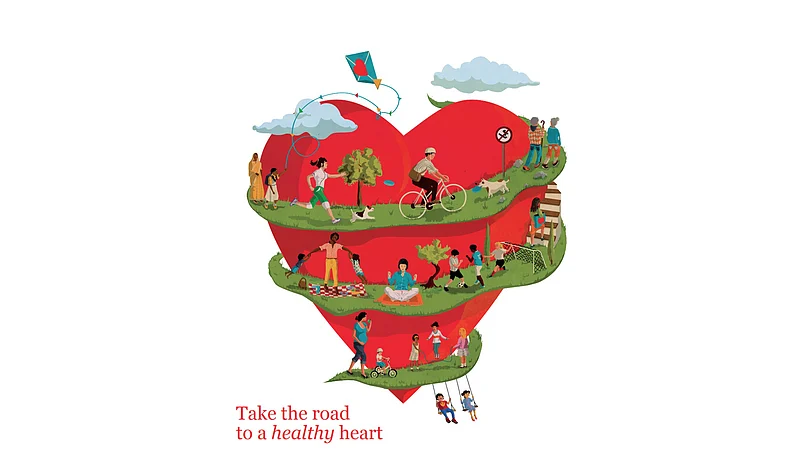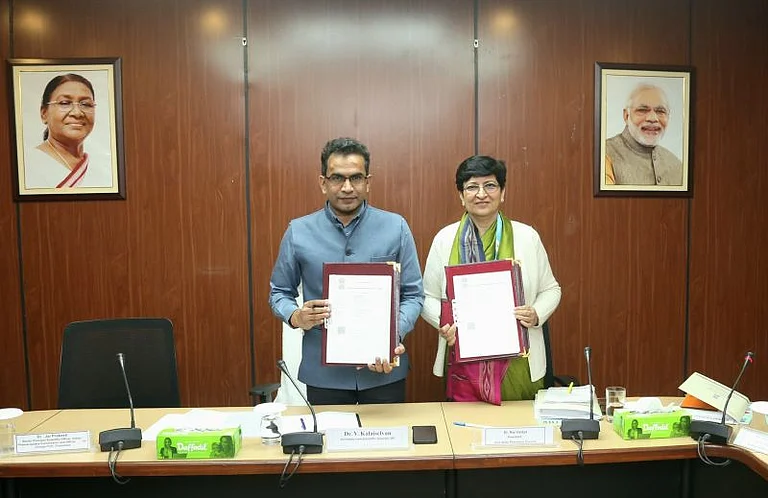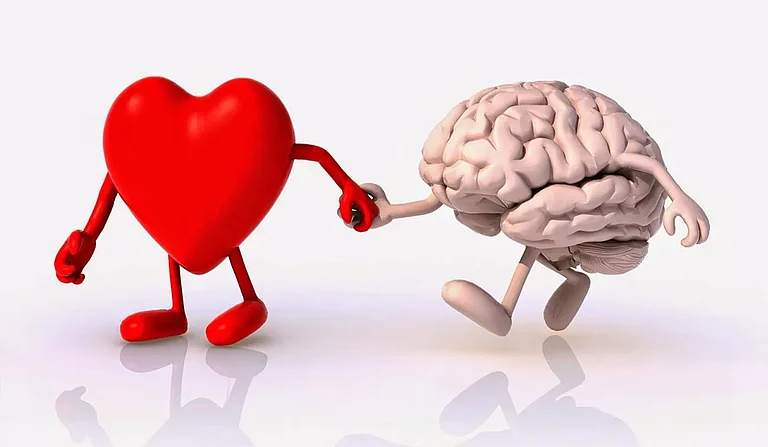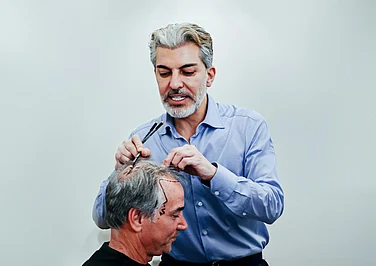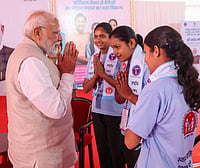On World Heart Day today, voices across the nation—from Government to officials and healthcare experts to celebrities—joined in urging urgent lifestyle changes, preventive care, and timely medical intervention to tackle the growing threat of cardiovascular diseases, especially among the youth.
The Union Health Ministry called on citizens to embrace six key heart-healthy habits: reduce salt intake, eat nutritious food, quit tobacco, maintain a healthy weight, limit alcohol, and exercise regularly. In a post on X, the Ministry appealed, “On #WorldHeartDay, let us come together to foster a heart-healthy community by adopting mindful lifestyle choices that safeguard our hearts today and for the years ahead.”
Union Home Minister Amit Shah echoed this call: “May we all pledge to keep our hearts healthy with regular exercise and a balanced diet to gift ourselves and our loved ones happier lives.”
Union Health Minister JP Nadda underlined the significance of the day, and said, “…By adopting healthy lifestyles, individuals can significantly reduce the risk of heart disease and improve overall well-being. Observing this day inspires communities to prioritize early detection, timely treatment, and heart-friendly habits for a longer, healthier life.”
Healthcare professionals issued a stark warning: heart disease is no longer an ailment confined to old age. With a worrying rise in cardiac cases among younger populations, cardiologists and hospitals have stressed the need for greater awareness, preventive lifestyle changes, and timely medical intervention.
Yatharth Tyagi, Director of Yatharth Group of Hospitals, sounded a cautionary note on the rising incidence of heart disease among youth as he said that as part of nationwide observances, Yatharth Super Speciality Hospitals organised a community event. Titled “Chalta Rahe Mera Dil” in Delhi, actor Bhumi Pednekar championed cardiovascular fitness and healthy living. The occasion also marked the inauguration of the hospital’s state-of-the-art Philips Azurion Cardiac Catheterisation Lab—the first of its kind in North and West Delhi—aimed at offering comprehensive interventional cardiac procedures under one roof.
Pednekar highlighted the impact of small lifestyle changes, saying, “Small changes, like regular walking, can go a long way.”
The World Health Organisation (WHO) said, “the risk of cardiovascular disease can be reduced by eating a healthier diet, increasing physical activity, quitting tobacco and reducing alcohol.”
At Fortis Hospital, Greater Noida, cardiologists expressed deep concern over a 30-40% surge in heart attacks among young adults aged 18 to 30. Dr. Shantanu Singhal, Consultant – Cardiology, shared alarming case studies, including a 26-year-old patient with no prior history suffering a heart attack due to complete blockage in the left coronary artery, and a 29-year-old IT professional diagnosed with triple-vessel disease.
“It’s clear that heart attacks are no longer confined to the elderly,” said Dr. Singhal. “We are seeing young patients in their 20s and early 30s with severe blockages. Many have undiagnosed diabetes, hypertension, or high cholesterol.”
Doctors warned that diabetic patients often do not show typical heart attack symptoms due to nerve damage, leading to silent or sudden cardiac events.
Social activist and BJP Mahila Morcha National Executive Member Dr. Padma Veerapaneni took to X, saying, “Strong hearts build strong lives. Prioritize wellness, manage stress, and never skip health check-ups—because every heartbeat counts.” Former Odisha Chief Minister Naveen Patnaik stressed the importance of lifestyle changes and routine screenings in preventing cardiovascular diseases.
Congress leader from Karnataka, DK Shivakumar remarked, “This day reminds us to care for the most vital part of our lives and make health a priority. Small steps like regular exercise, balanced diet, and stress-free living can go a long way in keeping our hearts healthy. Let us value every heartbeat and protect it with conscious choices.”
Siddharth Nigam, Facility Director at Fortis Greater Noida, emphasized patient education and the urgent need for preventive cardiology—including regular screenings, lifestyle counselling, and public health education—especially among India’s youth.
“Heart disease is largely preventable. Early diagnosis, healthy living, and public education can curb this alarming trend,” said Dr. Ajay Kaul, Chairman of Cardiac Sciences, Fortis Noida while Dr. V. Mohan, Padma Shri awardee and Chairman of Dr. Mohan’s Diabetes Specialities Centre, added, “A healthy heart is a happy heart! This #WorldHeartDay, make small changes that protect your heart and your life. Eat smart, stay active, and manage your diabetes.”
Dr. Vashisth Das, Interventional Cardiologist at Chinmaya Hrudayalaya Hospital, Bengaluru opined that the “biggest threat to heart health today isn’t age or genes — it’s our lifestyle.” He said, basic self-assessment is key. Dr. Das recommends monitoring seven areas: blood pressure, cholesterol, blood sugar, diet, exercise, tobacco/alcohol use, and weight relative to height and age. Routine checks can detect risks early, before symptoms appear.
At the same time, the World Heart Federation stressed the global urgency of heart health with the message, “…every heartbeat counts, and our mission remains as urgent as ever.”
Dr. Sangita Reddy, Joint Managing Director, Apollo Hospitals Group, posted on social media platform, “#WorldHeartDay made me reflect on how much more we can do to protect hearts — and each other’s. From prevention and early detection to recognising heart attack symptoms and knowing CPR, life-saving knowledge is out there, often overlooked. Teaching school students these critical skills is a vital first step—awareness starts young and saves lives. Let’s keep spreading the word.” The Ministry of Ayush also marked World Heart Day with a powerful message, emphasising the importance of proactive care. It noted that heart health is central to life and highlighted that up to 80% of premature cardiovascular diseases (CVDs) can be prevented through mindful lifestyle choices, early detection, and accessible healthcare.
According to the WHO, cardiovascular diseases (CVDs) remain the leading cause of death globally. In 2022 alone, an estimated 19.8 million people lost their lives to CVDs, accounting for approximately 32% of all deaths worldwide. Of these, a staggering 85% were attributed to heart attacks and strokes, underscoring the urgent need for global awareness, prevention, and timely medical intervention.



